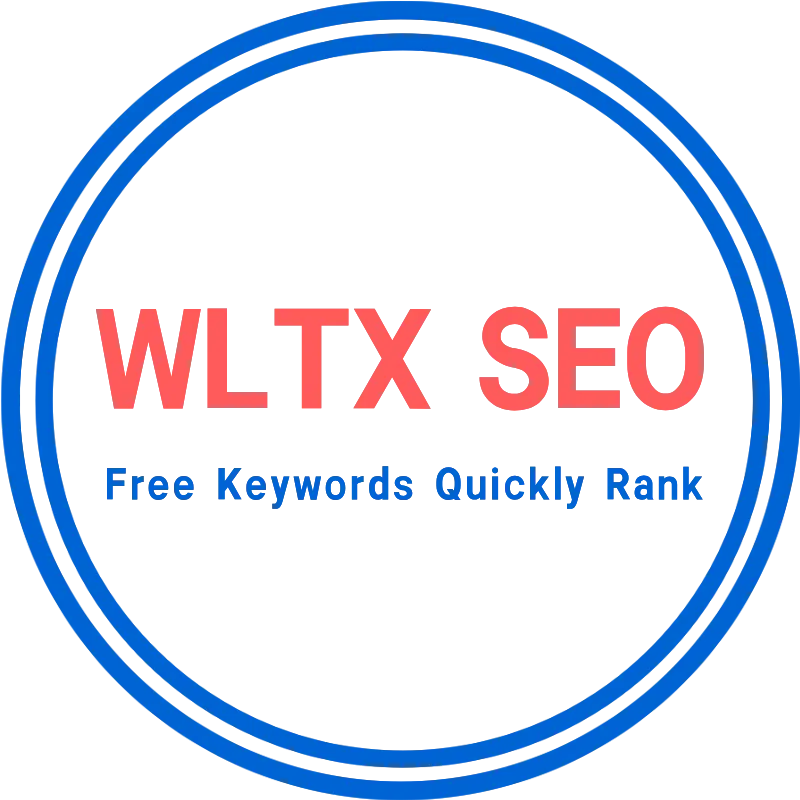Mastering the Climb: Proven Strategies to Boost Your Google SEO Agency Rankings
In the hyper-competitive digital marketing landscape, SEO agencies face a unique challenge: proving their mettle by ranking highly for their own services. Potential clients actively search for “best SEO agency,” “SEO services near me,” or “top SEO experts.” If your agency doesn’t appear on the first page of Google, it immediately raises questions about your capabilities. This isn’t just about vanity metrics; it’s about tangible business growth, establishing premier authority (E-A-T), and converting search intent into high-value clients. This article delves into advanced, actionable strategies designed specifically for SEO agencies aiming to conquer Google’s SERPs.
Why Agency SEO is a Different Ball Game
Unlike targeting niche local businesses or e-commerce products, ranking for broad, high-intent SEO terms involves tackling immense competition and intense scrutiny. Google expects agencies, especially in the YMYL (Your Money or Your Life) space of marketing services, to demonstrate exceptional Expertise, Authoritativeness, and Trustworthiness (E-A-T). Your website isn’t just a lead generator; it’s your primary credential. Failing to implement the very strategies you sell is an immediate red flag for potential clients and Google alike.
Core Pillars for Dominating Agency Rankings:
-
Hyper-Targeted On-Page Optimization (Beyond the Basics):
- Intent-Focused Content Architecture: Go beyond “SEO Services.” Structure your site around solving specific client problems: “Increase Organic Traffic,” “Fix Google Penalties,” “Local SEO for Medical Practices,” “E-commerce SEO Strategy.” Each page must deeply satisfy the searcher’s intent.
- Granular Keyword Strategy: Target both broad match and intensely specific long-tail keywords demonstrating expertise. Include geographically relevant terms if applicable (e.g., “Enterprise SEO Agency New York,” “SaaS SEO Consultant”). Incorporate semantic keywords related to processes (technical audits, link gap analysis) and outcomes (ROI, lead generation) naturally.
- Uncompromising UI/UX & Core Web Vitals: Your site must be blazing fast (LCP <2.5s), incredibly responsive (FID <100ms), and visually stable (CLS <0.1). WordPress frameworks, thorough caching, image optimization, and clean CSS/JS are non-negotiable. Navigation should be intuitive, and mobile experience flawless.
-
Demonstrating E-A-T (The Bedrock of Agency Credibility):
- Showcase Tangible Expertise: Who are the experts? Prominently feature bios of key team members – credentials, years of experience, specific specializations (technical SEO, content strategy, local SEO), and contributions to the field (speaking events, publications). Go beyond titles.
- Generate Authoritative, Evidence-Backed Content: Move beyond simplistic “tips.” Publish in-depth, data-driven content: original research studies (e.g., “2024 Impact of Core Web Vitals on Conversion Rates”), complex technical guides (“Advanced JavaScript SEO for SPAs”), rigorous case studies with specific metrics (e.g., “Increased SaaS Organic Traffic by 217% in 6 Months”), and insightful thought leadership pieces analyzing algorithm updates.
- Build Third-Party Trust Signals: Secure placements and guest contributions on highly reputable industry publications (Search Engine Land, Moz, Ahrefs, industry-specific news sites). List recognized awards, certifications (Google Partners program badges are table stakes, seek others), and verifiable testimonials emphasized with client logos and video snippets.
-
Strategic & Principled Off-Page SEO (Link Building with Integrity):
- Prioritize Quality Over Quantity: Actively pursue backlinks from genuine sources. Focus on digital marketing news outlets, respected business publications, industry associations, and reputable blogs linked to your clients’ verticals.
- Co-Creating Authority Content: Collaborate with other respected agencies or industry influencers on mutually beneficial webinars, podcasts, or co-authored research reports.
- Ethical Leveraging of Client Relationships: Encourage satisfied enterprise clients to mention you in relevant “Recommended Vendors” sections on their websites if appropriate, but avoid manufactured or low-quality link schemes.
-
Technical SEO Excellence (The Unsung Hero):
- Regular, Rigorous Audits: Conduct bi-annual comprehensive technical audits using tools like Screaming Frog, Ahrefs Site Audit, and Google Search Console, targeting crawlability, indexation issues, structured data errors, mobile usability, site structure, hreflang implementation (if multilingual), and security (HTTPS).
- Optimize Log File Analysis: Understand how Googlebot interacts with your site. Identify crawl budget waste, uncover indexing problems on critical pages, and optimize accordingly.
- Robust XML Sitemap & Indexing Control: Ensure your most important service and case study pages are prioritized in your sitemap and indexable. Use
noindexstrategically for low-value pages (archives, thin content).
-
Robust Content Strategy Focused on Problem-Solving:
- Answer “Can They Do What We Need?”: Create content that directly addresses common challenges your ideal clients face: “Signs Your Website Needs a Technical SEO Overhaul,” “How to Measure SEO ROI for Lead Generation,” “Choosing the Right SEO Agency: 10 Critical Questions.”
- Deep-Dive Case Studies: Case studies should be detail-rich (without revealing proprietary secrets). Explain the challenge, your specific methodology, challenges overcome, and quantifiable results using recognized metrics (organic traffic %, keyword ranking improvements, lead/sales uplift, revenue impact). Visualize data clearly.
- Stay Ahead: Engage and Educate: Regularly publish insightful commentary on Google updates, emerging trends (like SGE, entity-based search), and predictions. Position your agency as a forward-thinking leader.
-
Local SEO Amplification (Relevant for Service Area-Based Firms):
- Google Business Profile Prime Optimization: If you have a physical location(s) or serve specific areas, meticulously optimize GBP entries with accurate/extensive categories, high-resolution images, regular posts showcasing engagements or content, and proactively soliciting/responding to reviews.
- Localized Landing Pages: Create independent service pages for key cities/metros you serve, featuring genuine local content, case studies referencing the area, and locally relevant schema markup.
- NAP Consistency & Local Citations: Ensure flawless Name, Address, Phone consistency across all online directories and listings. Focus on high-authority local business directories beyond just Yext partners.
-
Leveraging Success and Data (Proof is Power):
- Data-Driven Differentiation: Use Google Analytics and Looker Studio dashboards to ethically showcase trends in your own organic performance over time (traffic growth, keyword ranking improvements). Transparency builds trust.
- Compelling Case Studies as Cornerstone Content: Feature these prominently. Use them in content marketing, sales outreach, and social proof sections.
-
Continuous Monitoring & Agile Adaptation:
- Performance & Algorithm Vigilance: Employ keyword rank tracking (focusing on high-intent agency keywords, location modifiers), continuously monitor organic traffic/engagement metrics, and set up alerts for Google algorithm updates.
- Competitor Benchmarking: Regularly analyze the SEO strategies of your top-ranking competitors – their content, backlink profiles, user experience, and messaging. Identify gaps and opportunities.
- Embracing Iteration: SEO is never “done.” Be prepared to reassess strategies based on data, algorithm shifts, and evolving client needs. Agility is key.
Conclusion: The Path to Premier Positioning
Boosting your SEO agency’s Google rankings transcends basic tactics. It demands an unwavering commitment to practicing what you preach at the highest level. Success lies in the synergistic execution of deep technical proficiency, unparalleled content demonstrating expertise and authority (E-A-T), ethical link building rooted in genuine relationships, and a relentless focus on showcasing measurable results. By meticulously implementing these advanced strategies, you transform your website into an undeniable testament to your agency’s capabilities. This visibility isn’t the finish line; it’s the foundation for attracting discerning clients, commanding premium rates, and establishing your agency as the undisputed leader in the competitive SEO landscape. Consistently deliver tangible value both to search engines and the clients you wish to attract, and your rankings – and reputation – will ascend accordingly.
Frequently Asked Questions (FAQs)
Q: How long does it take to see significant improvements in our agency’s rankings?
A: SEO is a long-term strategy. For highly competitive “SEO agency” keywords, expect a 6-12 month timeframe to see substantial movement, assuming consistent, high-quality implementation. Early wins may be seen in long-tail keywords or local rankings within 3-6 months.
Q: Is it really necessary to rank #1 for “SEO agency” terms? What if we focus on specific niches?
A: Ranking #1 for the broadest terms is extremely difficult. A powerful strategy is focusing intensely on specific niches (e.g., “SEO for B2B SaaS,” “Medical Practice SEO,” “E-commerce SEO Agency”). You can rank higher, face less competition, and attract more qualified leads aligned with your expertise.
Q: How much should we focus on our own blog vs. guest posting?
A: Both are crucial. Your blog is your owned platform to showcase deep expertise and build site authority. Guest posting on reputable third-party sites is vital for authoritative backlinks and brand exposure. Aim for a balance (e.g., 70% own blog, 30% strategic guest contributions). Owned content should be the primary driver of your E-A-T signal.
Q: Are testimonials and reviews really that important for SEO rankings?
A: While they aren’t a direct ranking factor in the traditional sense, they are HUGE for E-A-T and conversion. Genuine, detailed testimonials (especially with bylines/profile links) and positive reviews (on Google, Clutch, etc.) build immense trust with potential clients and signal credibility and satisfaction to Google, influencing user behavior signals (CTR, dwell time) which do impact rankings.
Q: How critical is technical SEO for an agency site?
A: Paramount. Any significant technical flaws (slow speed, crawl errors, poor mobile UX, broken links) immediately undermine your credibility and directly hinder your ability to rank. Potential clients (especially technically savvy ones) and Google will notice. Technical excellence is the foundational table stake for an SEO agency. Nobody trusts a plumber with leaky pipes.
Q: Should we actively pursue our own backlinks or focus solely on client work?
A: You must actively and ethically pursue high-quality backlinks for your own site. Relying solely on passive acquisition or links from client sites is insufficient against determined competitors. Dedicate resources to strategic link-building through content, relationships, and outreach specifically for your agency’s domain. Treat your site like your most important client.







